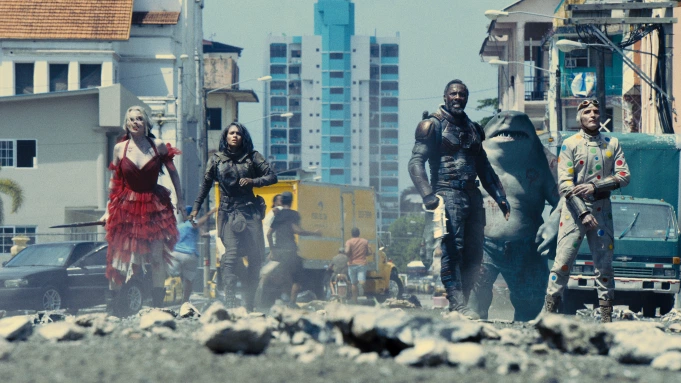Source: Deadline
When the summer of 2021 began, many people working in the film industry were optimistic that after over a year of being all but completely shut down due to the COVID-19 pandemic, people would come out in droves to the movies once it was safe to do so. As vaccine availability became more prevalent throughout the nation, many studios gained enough confidence to put some of their most high-profile productions into theaters, believing that those who had received the vaccine would be eager to go to the movies without having to worry about infection. At first, this did appear to be the case, with Paramount’s “A Quiet Place” grossing over $50 million in its opening Memorial Day weekend, Universal’s “F9” topping that with over $70 million, and Disney’s “Black Widow” garnering the largest opening weekend of any film released during the pandemic with $80 million. As the months passed, the amount of revenue generated by each newest film release seemed to only get higher and higher, and Hollywood was all but certain that its troubles were over and done with.
However, the events of the past couple weeks seem to suggest that this is not the case, and that the road to recovery is still not an easy drive. “Jungle Cruise”, released by Disney at the end of July, failed to top most of the major releases of the previous months, making around $35 million during its opening weekend. As low as these results may be though, many industry analysts had predicted the film would make even less over the weekend, so the film performing better than expected did little to raise the anxieties of those working in the business. The same cannot be said, however, for the film that came out the following weekend, one expected to do much greater business at the box office yet somehow fared even worse than “Jungle Cruise”. That film: the most recent addition to Warner Brothers’ superhero-centric DC franchise, “The Suicide Squad”.
Many had high hopes for the film going into the weekend, in large part due to how much positive buzz the film was creating ever since it was first announced. Not only did the cast consist of an unusually massive cast (even by superhero movie standards) of widely known names (including, but not limited to, John Cena, Idris Elba, and Margot Robbie), but the director of the film is none other than James Gunn, who had previously helmed Marvel’s “Guardians of the Galaxy” and its sequel, was fired from directing the third film, and was eventually rehired after a major social media backlash campaign. In the time between being fired and rehired though, Gunn had signed on to do “The Suicide Squad” for Warner Brothers, and considering the film opened to near universal acclaim (the film currently holds a very positive 92% on Rotten Tomatoes), one would think Gunn’s presence would result in great financial success as it had for his “Guardians” films.
If what “The Suicide Squad” has earned so far is any indication though, that might not be as achievable as previously thought. Not only did the film fail to top the opening weekend of any of the recent DC superhero films Warner Brothers has made over the past few years (with the exception of “Wonder Woman 1984”, which was released during the height of the pandemic), but its opening weekend totals were but a small fraction of what Gunn’s “Guardians” films had each made. Between Friday, August 6th and Sunday, August 8th, “The Suicide Squad” pulled in a total of $26.5 million; while this is enough to give the film the honor of having the biggest opening weekend of any R-rated film released during the pandemic, it’s nowhere near enough to allow the film to turn a profit, as its reported budget sits somewhere around $185 million. This is a major blow to Warner Brothers, which had previously found small, but respectable success with the likes of “Godzilla vs. Kong”, but now faces struggles once again between this and a steeper-than-desired drop-off for its previous release, “Space Jam: A New Legacy”.
What went wrong for “The Suicide Squad”? If one were to ask any insider working in the industry, they would most likely receive an abundance of reasons why the film didn’t perform nearly as well as expected. Some may point to the film’s R-rating, which may have made it difficult for younger audiences to access the film and provide the necessary payment to do so. Some may point to the poor reception of the film’s predecessor, 2016’s “Suicide Squad”, which may have discouraged (or even confused, given how similar the titles are) certain audiences from giving the film a chance. Others, however, will point to the film being available to watch for free on the Warner-owned streaming service HBO Max as the biggest reason for the film not gaining as much as it should have through ticket sales. According to Samba TV, an independent company that focuses on the analytics of streaming, “The Suicide Squad” was watched by over 2.8 million households over the past weekend, more than fellow DC films “Wonder Woman 1984” and “Zach Snyder’s Justice League”, but less than fellow R-rated action film “Mortal Kombat”. As reliable as Samba’s statistics are though, they don’t account for all factors related to streaming, so they don’t paint a full picture as to how well “The Suicide Squad” performed via HBO Max.
With all that said, none of these reasons address what is most likely the biggest reason for the film’s underperformance: the ongoing pandemic. Despite access to vaccines being greater than ever, a significant portion of the United States population remains unvaccinated (most notably those under the age of 12, who are not currently eligible to receive the vaccine), which is not only allowing the Coronavirus to continue its spread, but to also appear in new forms like the Delta and Lambda variants (the latter of which may be resistant to current vaccines). Although the number of vaccinated people is rising, it isn’t rising fast enough in certain parts of the country, resulting in new case numbers being as high as they’ve ever been (with states like Florida and Texas being especially notable for how prevalent the disease is spreading). Because of all this, many people are still concerned about leaving their homes and possibly contracting the virus, forcing them to remain in their homes and refrain from going out to the movies.
This is the primary reason why “The Suicide Squad” underperformed, and there’s a very strong chance that every other major film set for release in the next few months will suffer a similar fate. The message to Hollywood should be clear: the only way their films will be able to make big bucks at the box office is for the pandemic to come to an end.




